Ashura 2025: Karbala echoes in Lebanon's streets and alleys like never before
By Hiba Morad
This year’s Muharram commemorations in Beirut’s southern suburbs—Dahiyeh—and across Lebanon have unfolded with a magnitude and emotional depth rarely witnessed before.
Organizers and participants alike say the atmosphere has never felt more like Karbala—raw, resolute, and reverberating with the spirit of resistance and sacrifice.
Hundreds of Mowkebs line the streets across the country, offering food, water, and compassion to mourners who are marking the martyrdom anniversary of Imam Hussein (AS), the third Shia Imam.
In Shia tradition, Imam Hussein’s (AS) defiant stand against the corrupt and despotic Umayyad regime is not just a historical event but a timeless symbol of courage, moral clarity, and the uncompromising struggle against tyranny and injustice.
A symbolic frontline in Dahiyeh: The “Forefronts Mowkeb”
In the heart of Dahiyeh, under the bridge on Martyr Hadi Nasrallah Highway, a unique Mowkeb—temporary service tent—among dozens of other Mowkebs across Dahiyeh has been established in what is now known as Martyrs’ Square.
The tent, named “The Forefronts Mowkeb: The Awaiters of Imam Mahdi,” was set up by young men from South Lebanon’s border towns, including Aitaroun, Mays al-Jabal, Bleeda, Houla, and Bint Jbeil—areas that have endured the brunt of Israeli military aggression.
“This is not a random initiative,” said Sheikh Abdallah, one of the main organizers, speaking to the Press TV website.
A victim of a pager explosion who lost his sight serves tea to people during Muharram mourning processions in Dahiyeh, southern Lebanon.
— Press TV 🔻 (@PressTV) July 5, 2025
Follow https://t.co/B3zXG74hnU pic.twitter.com/mS5J8oqsMI
“We came together from towns that have witnessed war and resistance to serve the people and commemorate the martyrdom of Imam Hussein (AS). This Mowkeb is a declaration of unity and steadfastness.”
The Mowkeb offers free food, water, and beverages to mourners, accompanied by the rhythmic sounds of eulogies echoing through the streets.
Volunteers are also fundraising to support young women who wish to wear the hijab and students in need of scholarships—initiatives that Sheikh Abdallah said reflect the core values of Imam Hussein’s (AS) illustrious legacy.
A message of resistance
“This is the Dahiyeh of Sayyed Hassan Nasrallah,” Sheikh Abdallah told the Press TV website.
“We are here to tell the world that we will continue on the path of Imam Hussein (AS), a path of resistance against occupation and oppression. This is the same path that Sayyed Nasrallah followed and encouraged us to follow throughout the years.”
He emphasized that the message from Dahiyeh is clear: threats and pressure will not deter the community’s commitment to justice.
“The Zionists must realize by now that the more they try to intimidate us, the more resolute we become.”
The Mowkeb will remain active until the day of Ashura. Organizers say the initiative will become an annual tradition, reinforcing the spiritual and political dimensions of the commemoration.
Defense requires no permission: Hezbollah chiefhttps://t.co/CElsyhIpDw
— Press TV 🔻 (@PressTV) July 5, 2025
A broader movement
Ashura this year comes amid heightened regional tensions, with similar commemorations taking place across Iran, Iraq, Syria, and beyond.
In Lebanon, the events in Dahiyeh and other areas reflect a broader cultural and ideological alignment with the values of Karbala—resistance, sacrifice, and social justice.
“The people of Dahiyeh, the South, the Bekaa, and across Lebanon come from the school of Imam Hussein (AS),” Sheikh Abdallah said. “There is no third path. We either defend the oppressed to achieve victory, or we become martyrs.”
As the day of Ashura unfolds, Dahiyeh stands not only as a center of mourning but as a powerful symbol of enduring resistance.
‘2025: Like never before’
This year’s Muharram commemorations in the town of Srifa, southern Lebanon, have taken on a deeply emotional and symbolic tone, with residents describing the atmosphere as unlike any in recent memory.
For many, the events of the past year—marked by the martyrdom of key resistance leaders and the devastating pager explosions—have brought the tragedy of Karbala closer to home than ever before.
“This year is very different,” said Batoul, a volunteer at one of the town’s major Mowkebs: the Sayyed al-Shohada Mowkeb (service tents).
“It feels like we are living the battle of Karbala. Sayyed Hassan and many other leaders were martyred. Of course, we know that no tragedy in history compares to Karbala, but through what we’ve lived, we were able to feel and visualize what happened back then.”
Lebanese lawmaker says Hezbollah won’t lay down arms amid Israel's attackshttps://t.co/YuxzQCaE4P
— Press TV 🔻 (@PressTV) July 2, 2025
A year of loss and resilience
The martyrdom of Sayyed Hassan Nasrallah in September 2024, following an Israeli airstrike on Beirut’s southern suburbs, sent shockwaves across Lebanon and the wider region.
His funeral in February 2025 drew millions and was described as a renewed pledge to the path of resistance, with Imam Hussein’s (AS) school of thought at its core.
Adding to the collective grief was the unprecedented wave of pager explosions in September 2024.
Thousands of pagers and walkie-talkies—used by Hezbollah members and civilians alike—were remotely detonated in a sophisticated attack carried out by Israel’s Mossad spy agency.
The terrorist explosions killed dozens and injured thousands, many of whom suffered severeinjuries including the loss of limbs and eyesight.
“We see the injured among us today—those who lost their hands, fingers, or eyes,” Batoul said.
“It reminds us of Abu al-Fadl al-Abbas (AS), the brother of Imam Hussein (AS), who lost both arms and one eye in the battle of Karbala. We can say that almost every family in South Lebanon has lost a loved one who was martyred due to Israel’s aggressive war on Lebanon. These aren’t just stories anymore. They are our reality.”
The annual commemorations are not only religious but deeply political, reflecting a community that sees itself as part of a broader struggle against oppression.
“This is not just about history,” Batoul noted. “It’s about now. It’s about standing firm in the face of tyranny, just like Imam Hussein did.”
Press TV's correspondent Mariam Saleh in Beirut explains the current situation in the hospitals in Lebanon following the israeli ‘pager’ terrorism pic.twitter.com/PcoetzPGqY
— Sarah Wilkinson (@swilkinsonbc) September 17, 2024
Pager victims — Karbala’s living example
Among the mourners flooding the streets of Dahiyeh and towns across Lebanon this Ashura are thousands of young men and boys—some as young as 12—who were injured in the devastating pager explosions of September 2024.
Despite their wounds, many have refused to stay home, choosing instead to serve in Mowkebs and reaffirm their commitment to the path of resistance.
“This year, Ashura is very different,” said Hassan, a young man who lost both eyes in the explosions, speaking to the Press TV website from a Mowkeb in Dahiyeh.
“The grief is for the loss of Imam Hussein and the loss of our loved ones who were fighting Israel. But we are proud. Despite all the hardships, we continue to resist and have become more resilient.”
Hassan said they are commemorating Ashura to renew their pledge to the martyrs of Karbala as well as to the martyred Hezbollah resistance movement leader.
“We will never become desperate, and we tell the Israeli enemy that fearlessly we commemorate the tenth of Muharram—the Ashura of Imam Hussein (AS)—and we renew our pledge to Sayyed Hassan Nasrallah, who looks upon us from the heavens, and to our Hezbollah leader today, Sheikh Naim Qassem,” Hassan told the Press TV website.
UN experts condemn unlawful US-Israeli aggression against Iran
US war on Iran burns past $1bn in early days, with total projected to exceed $95bn
US officials warn of challenges posed by Iranian drones
'We warned repeatedly about the limit to our patience': Hezbollah leader
IRGC announces 'blinding' US, Israel's eye in region; vows harsher retaliation coming
Iraqi resistance leader urges Americans to ‘reclaim’ country from Israeli ‘puppet Trump
Iran blasts US-Israeli use of autonomous killer systems against civilians as 'war crime'
US-Israeli aggression left Tehran with no choice but to defend Itself: President Pezeshkian



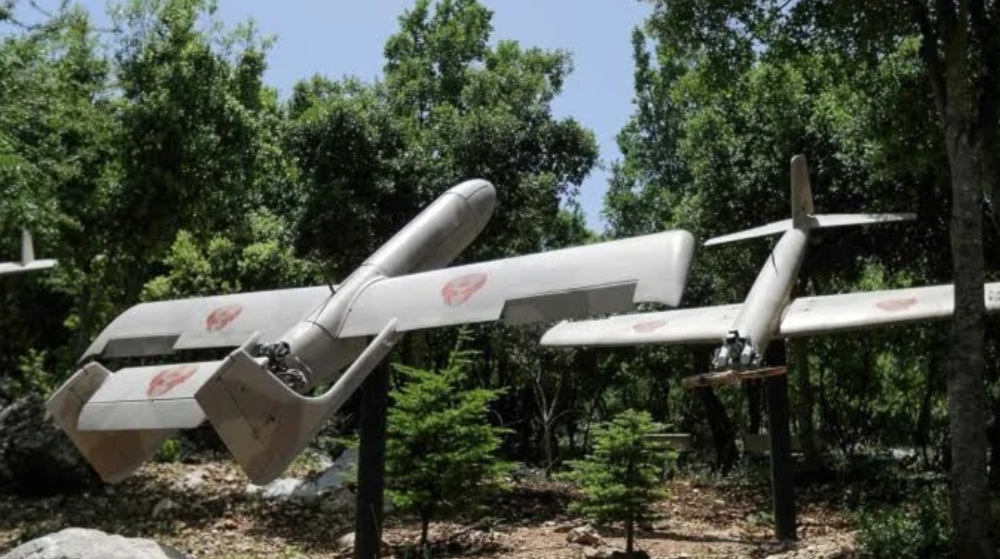
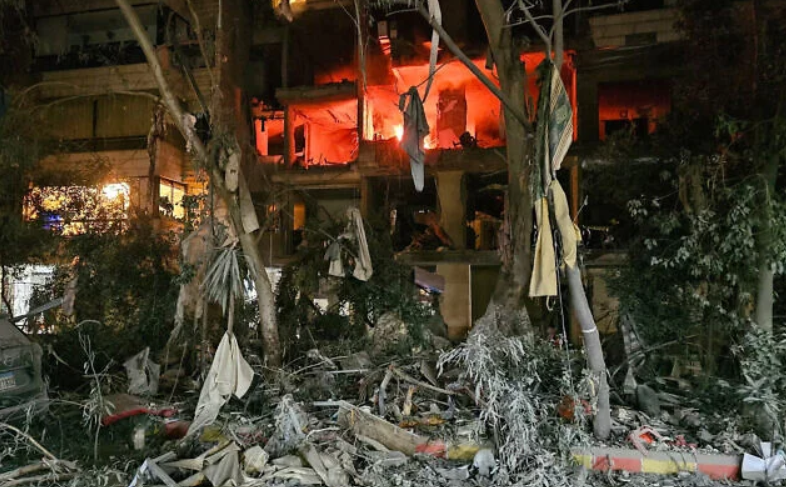
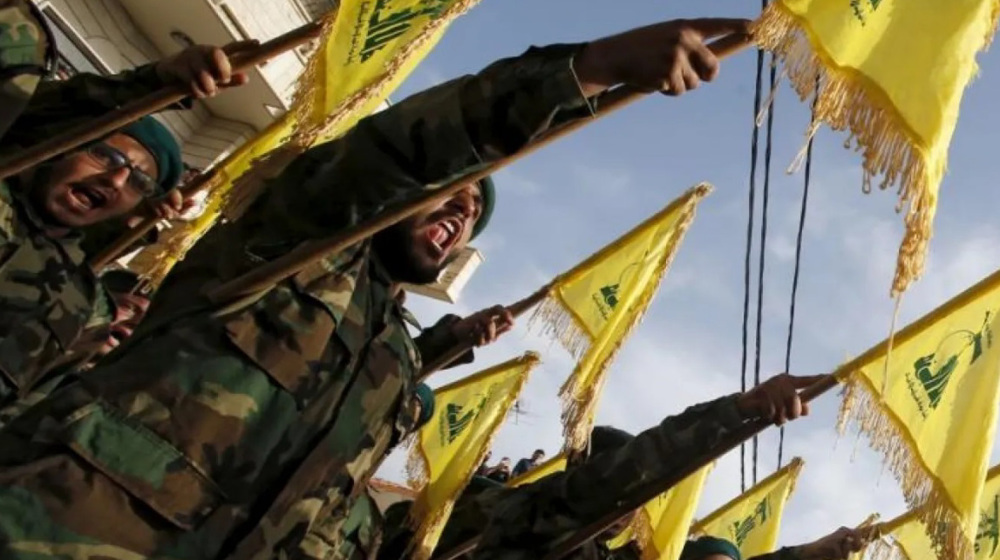



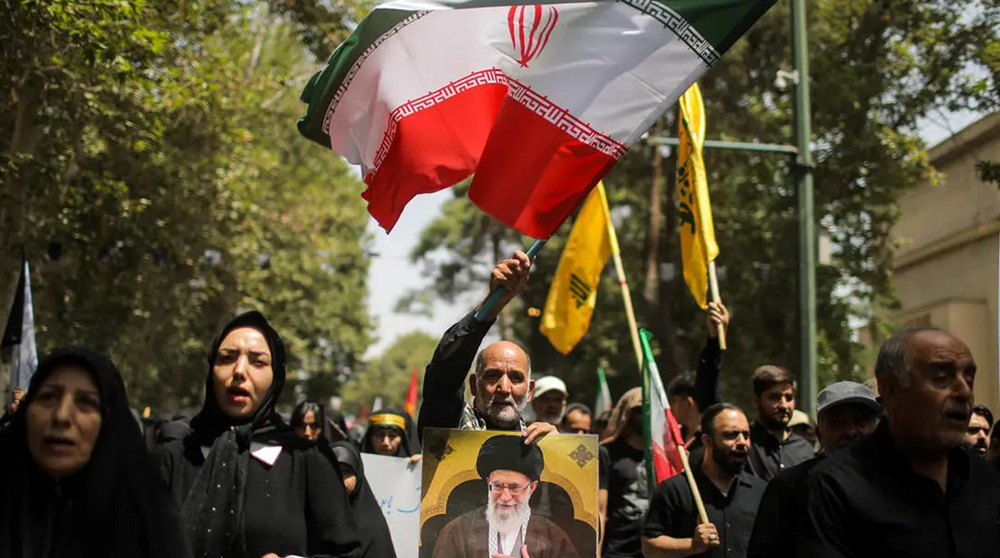
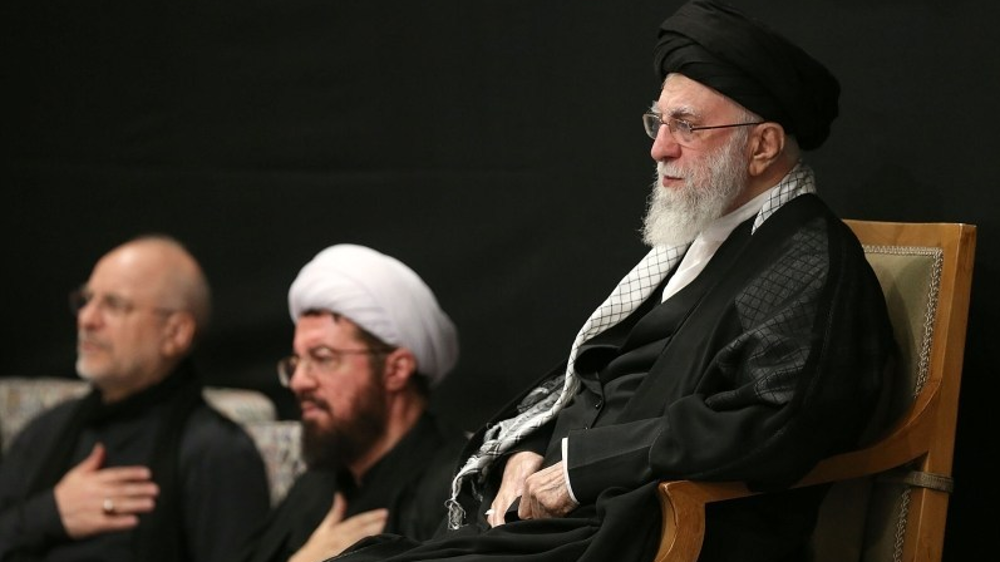
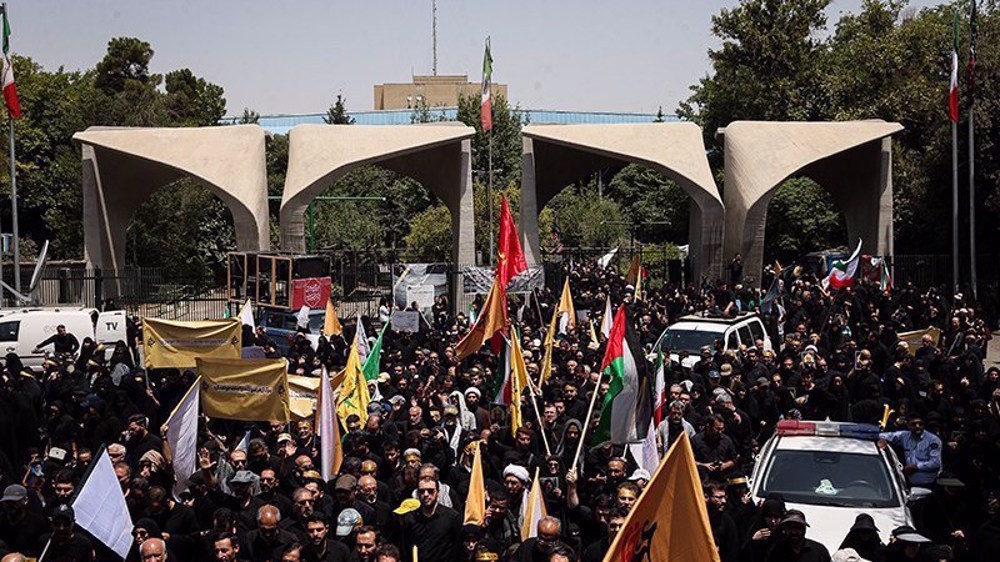

 This makes it easy to access the Press TV website
This makes it easy to access the Press TV website